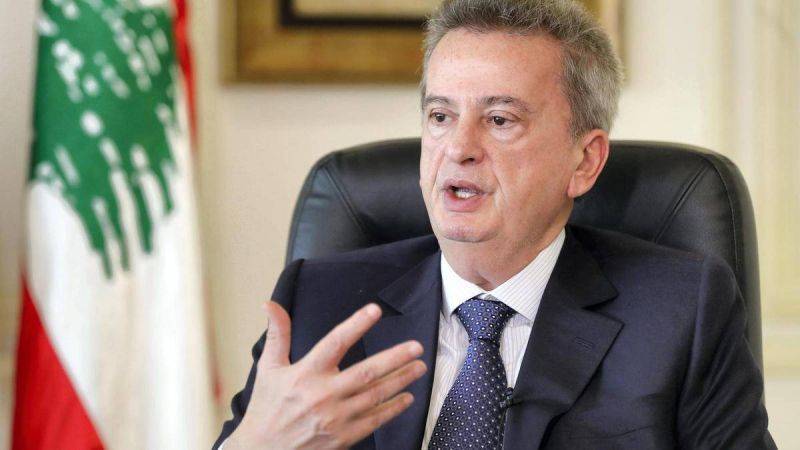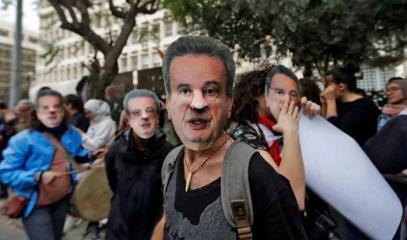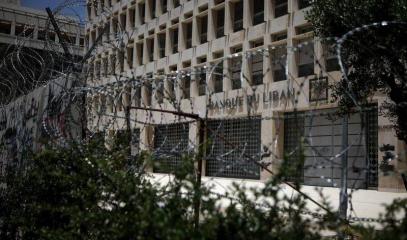International arrest warrant issued for Bank of Lebanon governor
Riad Salamé is suspected of building up a wealthy real estate and banking fortune in Europe behind massive embezzlement of public funds. The banker has already appealed against the decision and does not risk extradition. Custodian of secrets and financial deals, big and small, of the Lebanese political class.
Beirut (AsiaNews) - In recent days, we have witnessed a turning point in the French investigation regarding the assets of Bank of Lebanon (BoL) Governor Riad Salamé. Following his failure to appear before magistrates after a summons issued by Investigating Judge Aude Buresi of the Paris Court of Appeals, which is in charge of the investigation into the governor's assets in Europe, the court issued an international arrest warrant against him.
At the helm of the institution since 1993, named in 2011 among the world's top six central bank governors by Global Finance magazine, he is suspected of having built up a wealth of real estate and banking assets in Europe over time.
He allegedly acted through a complex system of Chinese boxes of financial companies and a massive misappropriation of Lebanese public funds. The notice of indictment that formalized the investigation and started the prosecution process dates back to July 2021.
Unperturbed, the former Merrill Lynch investment banker announced his intention to appeal the decision. His lawyer Pierre-Olivier, quoted by Afp, assured that the summons is undermined by a formal defect, having been addressed "less than ten days before the scheduled date of questioning."
Keeper of small and big secrets and financial deals of the Lebanese political class, head of the Bdl since 1993, the 72-year-old Salamé is the keystone of the banking system that led the cedar country to bankruptcy.
This failure has resulted in the collapse of the Lebanese lira (which has lost 98 percent of its value against the dollar) and the banking system in general. And it has deprived tens, if not hundreds of thousands of institutions and savers of funds and resources.
Salamé is not solely responsible for and involved in this collapse, but as the obligatory intermediary between private banks and the Lebanese state, he could serve as a scapegoat for a general system of corruption from which Lebanon still cannot free itself. All this in spite of the intervention of the International Monetary Fund (IMF), which tried to limit the damage.
His indictment, and possible arrest, are watched with great fear by a substantial part of the political class. The man, in fact, is privy to all the secrets of the Lebanese Republic. His eventual downfall would eventually uncover a fatal Pandora's box for some, ringing the end of an era that many fear, from Nabih Berry to Walid Joumblatt to Saad Hariri and Nagib Mikati, the current interim prime minister.
Why France?
Why did the French courts indicte Salamé and not Lebanese? According to political circles, he has protections, which Mount Lebanon prosecutor Ghada Aoun has tried in vain to circumvent.
Since the beginning of this year, European judges, including French magistrate Aude Buresi, have traveled to Lebanon three times to interrogate Salamé and his relatives, particularly his younger brother Raja Salamé. In March 2022, France, Germany and Luxembourg had frozen 120 million euros of Lebanese assets suspected to belong to Salamé himself.
The concrete consequences of the arrest warrant are difficult to determine in the immediate term. It could limit Salamé's foreign travel, although the latter need not fear possible extradition. Beirut, in fact, does not extradite its citizens as everyone knows from the affair concerning Carlos Ghosn, the former CEO of Renault-Nissan. Accused of embezzlement and malfeasance, he found refuge in Lebanon after a daring escape from Japan.
Political reactions to the notification of the arrest warrant are varied. For the Free Patriotic Movement (CLP) founded by former head of state Michel Aoun, "the international arrest warrant issued against Riad Salamé is an important turning point in the fight against corruption."
The Kataëb party and MP Mark Daou exponent of the protest movement called for the governor's removal from office in order to "safeguard the prestige of the institutions" before domestic public opinion and the international community. However, such a measure, notes President of the International Movement of Lebanese Businessmen Fouad Zmokhol, could push "foreign lenders working with Lebanon to disengage" from the agreements on the ground.
22/09/2020 12:45









.png)










